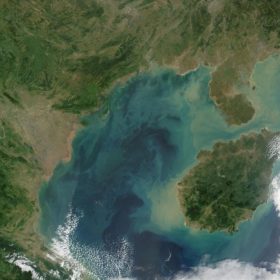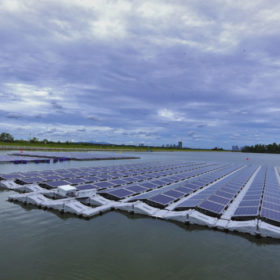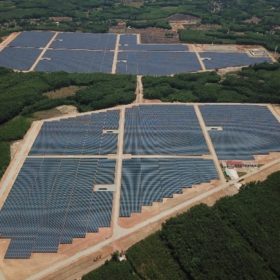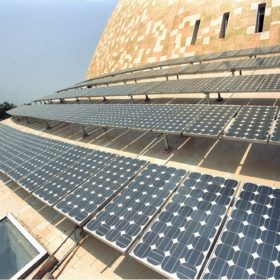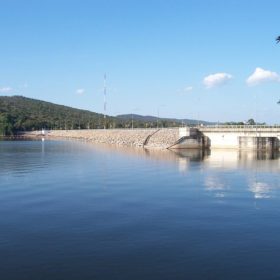Cost of developing renewables in Southeast Asia put through new mapping tool
Using an application based on resource data and country-specific techno-economic inputs, a report has analyzed the costs of developing utility scale renewables in Southeast Asia and found abundant, cost-competitive potential.
Thai utility EGAT launches tender for 58.5 MW floating project
The project is part of the utility’s plan to deploy large-scale floating PV installations at several hydroelectric dams it operates in Thailand.
Solar could bring 200,000 jobs to the UK by 2030 – but only with government backing
As the solar industry digests yesterday’s announcement by Theresa May of a net zero carbon ambition by 2050, developer Solarcentury says Downing Street is hugely underestimating the role PV can play in achieving that milestone.
Sharp completes 49 MW in central Vietnam
A unit of the Japanese electronics group has finished building a 49 MW solar array in Quang Ngai province, in collaboration with Thailand’s Sermsang Power.
Thailand launches net metering scheme for residential PV
The program will be open to solar power systems with a generation capacity larger than 10 kW. Initially, some 100 MW of solar power will be allocated through the mechanism. Net metering tariffs, however, will be little more than half the current electricity price.
PV+storage opportunity looms in Asia-Pacific region: WoodMac
Solar-plus-storage could be competitive against gas peaking power plants in Australia within the next five years, as the average solar-plus-storage LCOE across the Asia-Pacific region is set to fall from $133/MWh this year to $101/MWh by 2023, according to a newly released research report.
India’s solar sector will outperform globally despite near-term challenges, says Fitch Solutions
With Narendra Modi being tipped to triumph again in the current Indian elections, Indian solar capacity is expected to grow robustly, at 15.3% per year, on the back of continued strong government support.
India slaps anti-dumping duty on east Asian EVA sheets
Following a petition by domestic PV panel manufacturers, India’s Directorate General of Trade Remedies has recommended the imposition of duties ranging from $537-1,559/metric ton on solar ethylene vinyl acetate sheets imported from China, Malaysia, Saudi Arabia and Thailand.
BNEF: Cheap finance is key to PV deployment in the developing world
While solar is lauded as a cheap energy resource in OECD countries, the cost of financing PV projects in developing nations has impeded progress. Development banks and the Clean Technology Fund they finance have played a key role in providing access to cheap financing for clean energy projects in many markets.
Thai utility EGAT plans 69 MW of floating PV projects
Floating plants with capacities of 45 MW and 24 MW have been announced by Thailand’s largest power provider. They may be the first of nine projects at dams operated by the utility.
